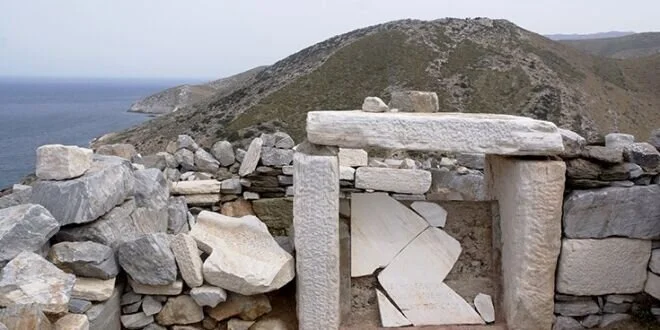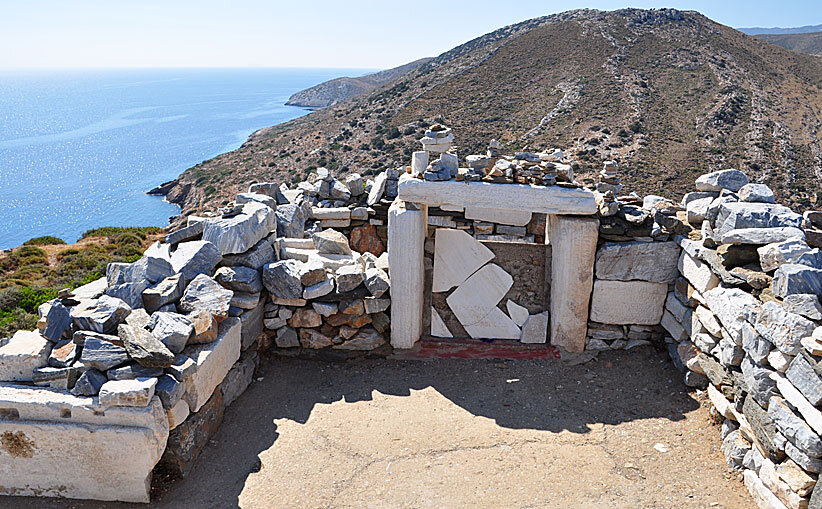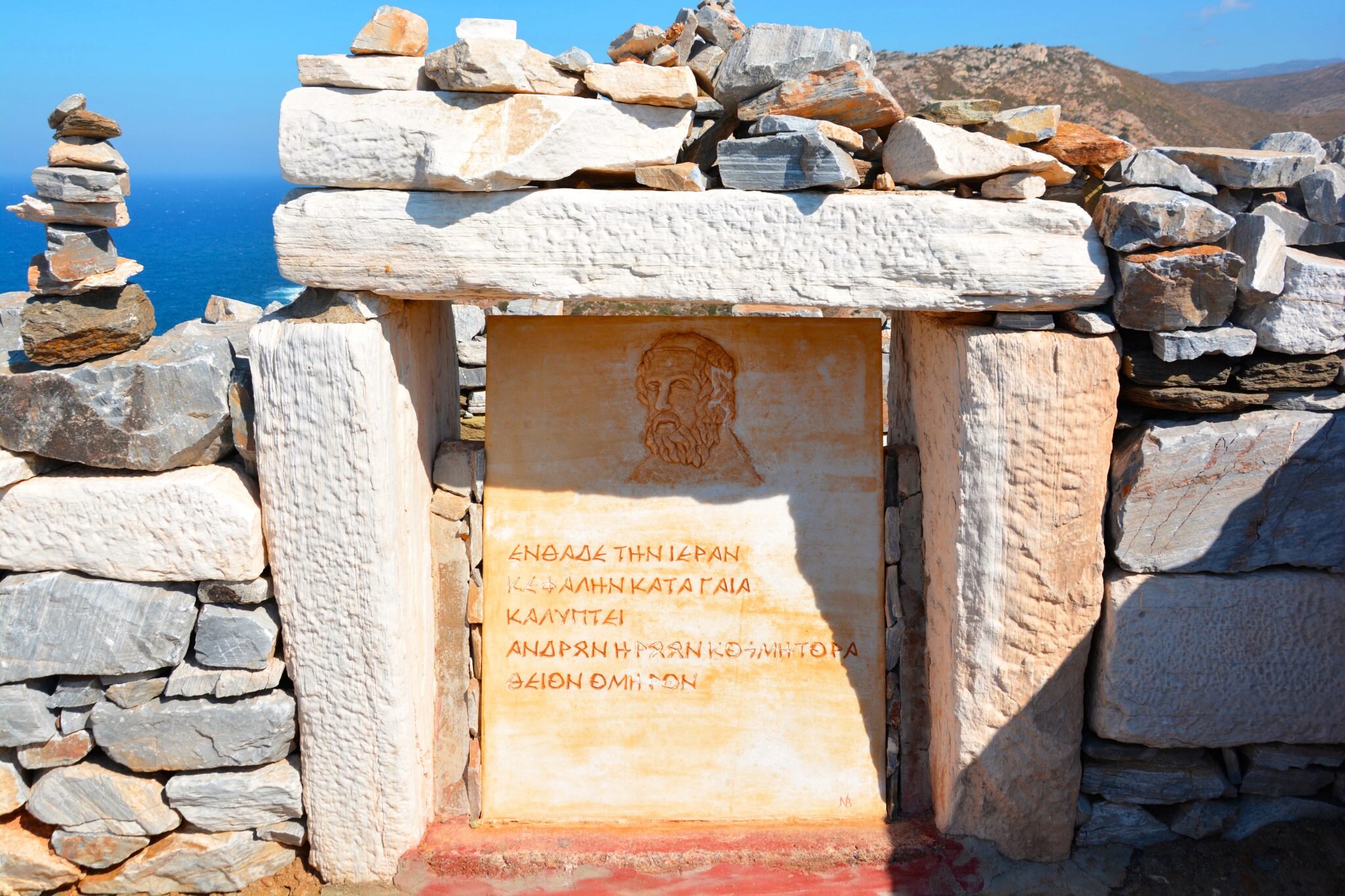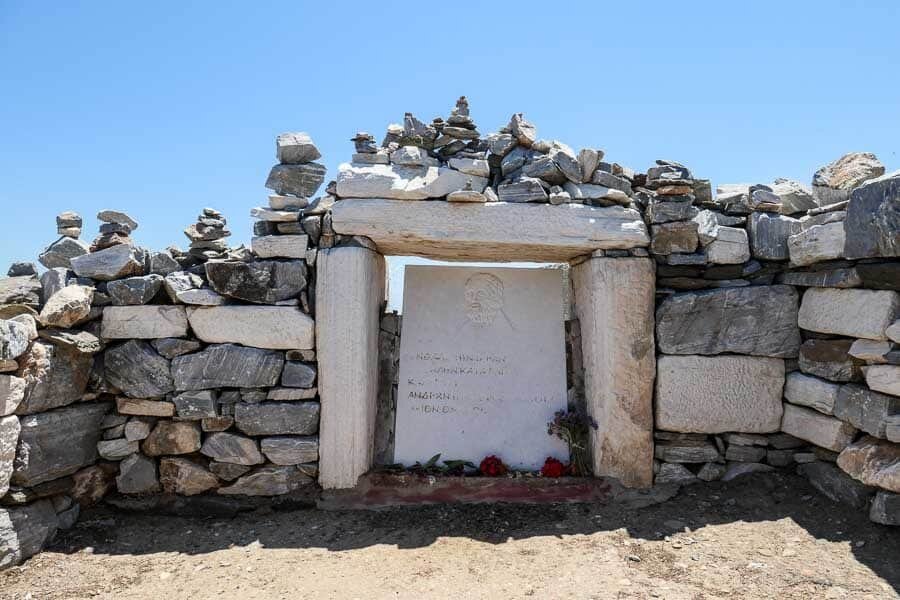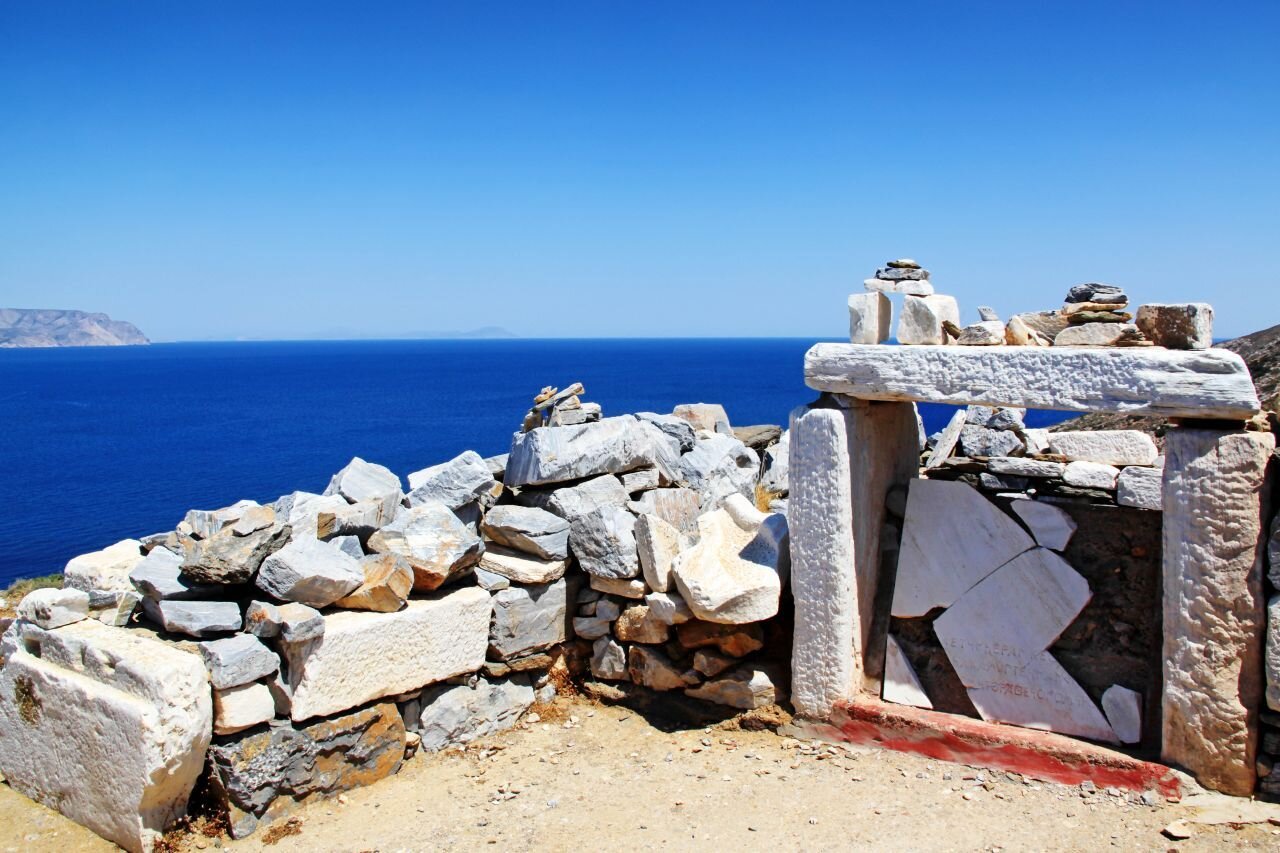Even if you've visited a place many times, you'll often be surprised by stories and sights you may not have known. Something like this will probably happen to you with a popular island that has an attraction that many are not aware of. So, this happens in Ios and the "Tomb of Homer".
So this Greek island claims the site where Homer is said to have died. It is an island heavily associated with tourism, popular especially among young people, but as it turns out, has many more treasures to offer. And one of them is the so-called "Homer's Tomb".
According to reliable ancient writers, such as Herodotus and Pausanias, Ios was the island where Homer died and where the "Homer's Tomb" is located. Aside from the written accounts that exist, Homer's relationship with the island is also evidenced by depictions on coins of Ios in the mid-3rd century BC. When you arrive on the island, you will see that it is the ruins of a Hellenistic tower that have established themselves in the minds of the people of Ios as more than just "the tomb of Homer". Information about the death and burial of Homer can also be found in the writings of Strabo.
The area where Homer's tomb is located offers a unique view that will take your breath away. You follow a short marked trail of only ten minutes and rest at a kiosk. Also very close to Homer's tomb is the ruined settlement of Plakotos.
The legend of how Homer died has several versions and is of particular interest, as is the question of where the "Tomb of Homer" is located. The prevailing version (according to the traveler Pausanias) is that Homer visited the Oracle of Delphi to ask Pythia who his parents and origins really were. Pythia answered with the following oracle saying, "Your mother's home is the island of Ios, which will receive you when you die, but beware the riddle of little children." The poet, however, disobeyed the oracle and traveled to Ios to find his roots.
' When Homer arrived there, he is said to have seen some little children fishing on the shore. Homer asked them what they had caught, and the children replied: "Όσσ' έλομεν λιπόμεσθα, όσ' ουχ έλομεν φερόμεσθα".
That is, "what we catch we leave, what we don't catch we bring with us". What the children said were lice. Those who found them were killed, but those who didn't have them on their minds. Homer, however, could not find the answer to the riddle, but at that moment he remembered the warning of Pythia. He was horrified when he remembered it and quickly left.
Legend has it that the path was muddy and in his haste, the poet slipped and fell. In the process, he hit his head and was dead almost on the spot. According to another version, Homer died of grief because he could not solve the riddle. There is the "Tomb of Homer".
Homer's Tomb VIDEO

